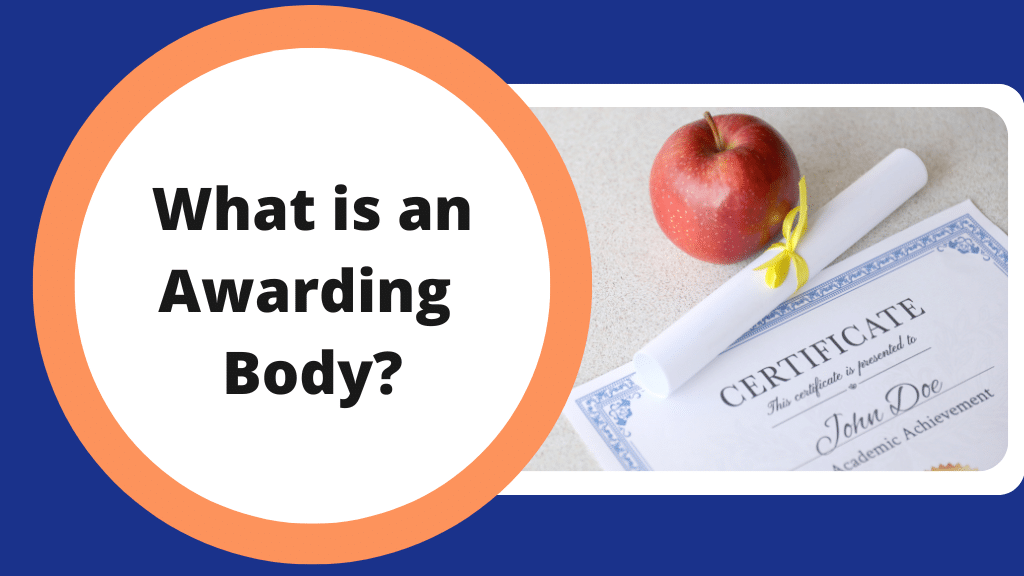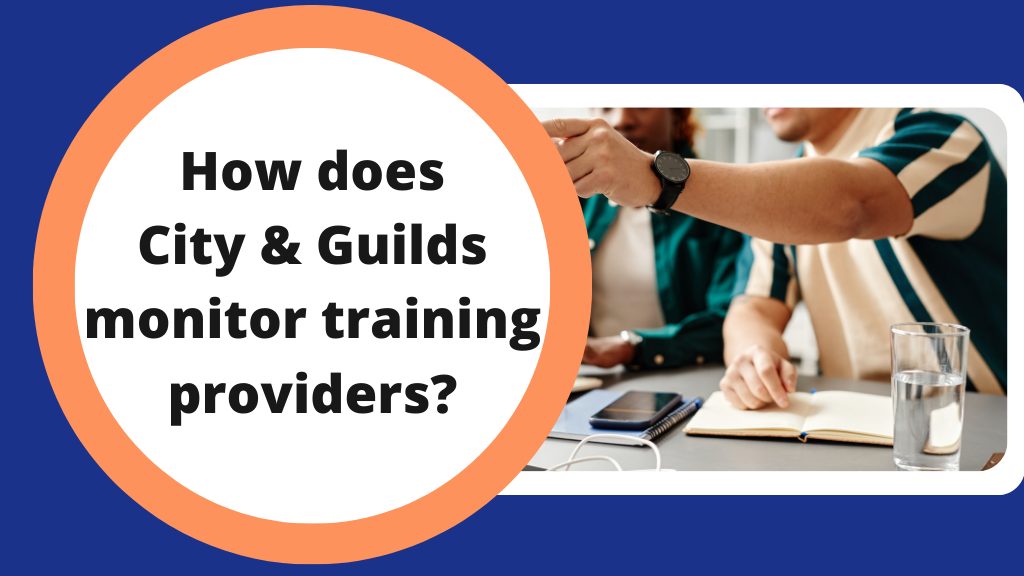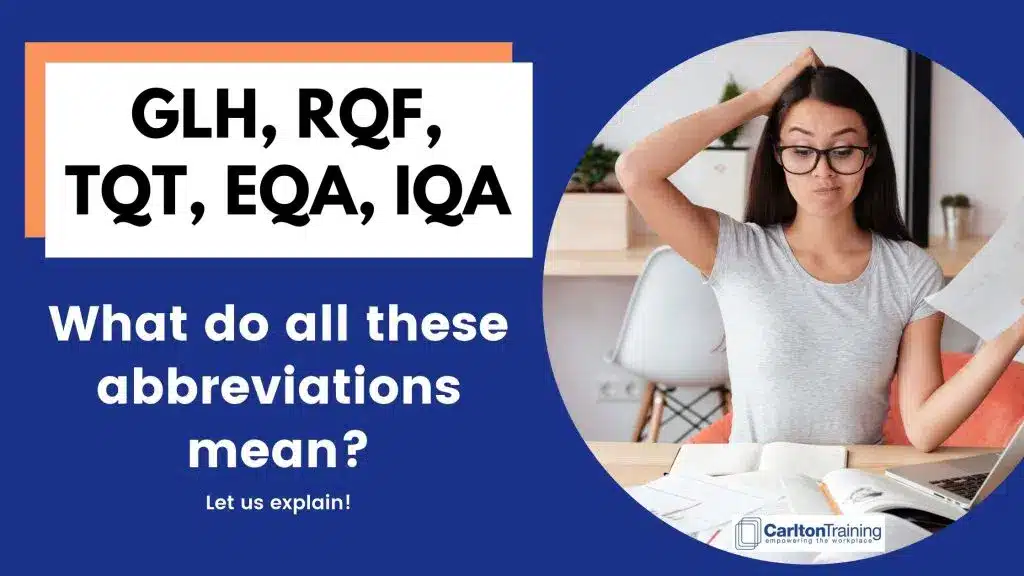June 5, 2025
What Qualifications Do I Need to Issue Certificates?

If you’re working in a training centre or further education (FE), you might be wondering what qualifications are actually needed to sign off on learner or training certificates. The short answer? You can’t do it alone. You can’t set up with just a printer and start passing people! You’ll need to be part of an organisation such as a training company, college or institution which has approval from a recognised Awarding Body to enrol and assess candidates. An important part of getting approved is having qualified staff, especially Internal Quality Assurers (IQAs), who are vital for meeting the requirements.
Who issues certificates for a course?
As you’ll know, when a learner completes a course, it’s not just a case of printing a certificate and popping it in the post. Training providers must follow strict procedures set by the awarding bodies to be approved to request certification, and this is where the IQA comes in.
Usually, it’s the IQA who is responsible for making sure that the assessment decisions made by assessors (i.e. pass or fail) are well-founded, fair, and in line with the standards set by awarding organisations and Ofqual. Without an appropriately qualified IQA on your team, your centre may not meet their approval conditions. Even if the teaching and assessment are spot on, having an IQA is vital to showing that they are.
So, while the awarding body physically and formally issues the certificate, the IQA’s oversight ensures that the centre is eligible to claim it.
Internal Quality Assurance: Backbone of Centre Compliance
What does an Internal Quality Assurer actually do?
An IQA makes sure that assessments are fair, accurate, and meet the standards set by awarding bodies. If you’re running a course that leads to a recognised qualification, someone in your centre must check the work of assessors, and that’s where the IQA steps in.
The IQA works as the quality checker behind the scenes. They sample learner work, support assessors, and make sure everything is done by the book before certificates are signed off.
What do awarding bodies expect?
Awarding bodies like Pearson, NCFE, or City & Guilds require centres to have qualified internal quality assurers in place. These organisations often check that your IQA:
- Holds a recognised and relevant qualification like the Level 4 IQA Award.
- Has up-to-date experience in the subject area.
- Keeps clear records and supports assessors with their assessment processes and practice.
- Prepares for audits or external quality checks.
Without this, your centre may struggle to meet approval standards.
Day-to-Day Tasks of an IQA
IQA work is ongoing, and includes:
- Undertaking quality assurance processes like sampling assessments to make sure decisions are consistent.
- Reviewing feedback given to learners.
- Supporting assessors and helping them stay compliant.
- Keeping records for checks by EQAs (External Quality Assurers) who work for the Awarding Body.
More Than Just Qualifications: What Centres Need From IQAs
While holding an IQA qualification is necessary, it’s only one part of running a training centre. Awarding bodies look for a well-rounded setup that includes well-thought-out internal systems and ongoing staff development.
This means having clear policies for assessment, appeals, and safeguarding, along with a structured approach to CPD. Centres must also track learner progress accurately and keep detailed records to support quality assurance audits.
IQAs are central to making all of this work. They not only check assessor’s work but also help make sure that everything from internal paperwork to assessor support meets external standards.
That’s why our Level 4 IQA courses cover more than just the basics. They prepare you to lead on compliance, guide your assessor team, and maintain the standards that awarding bodies expect.
What Level 4 Internal Quality Assurance Qualifications Cover
At Carlton Training, we offer three versions of the Level 4 IQA qualification, and each is designed to suit different roles, responsibilities, and career goals within internal quality assurance.
Every IQA course we run starts with the same foundation: understanding how to assure the quality of assessment processes. All three include the core theory unit:
- Understanding the Principles and Practices of Internally Assuring the Quality of Assessment
This means that whichever option you choose, you’ll gain the knowledge you need to work within the awarding body requirements and support effective, fair assessment practices.
Level 4 Award in Understanding IQA (RQF) – Theory Only
Best For: support staff, admin teams, or anyone not yet in an IQA role.
This Course:
- Will give you a full overview of the theory of IQA principles and processes.
- Doesn’t require you to have access to the learner’s work to sample.
- Is great CPD for anyone interested in becoming an IQA or working in a related role.
Level 4 Award in IQA Course – Full Award
Best For: people currently working as IQAs or those ready to start.
This Course:
- Combines theory with practical skills so you’ll actually carry out sampling and give feedback.
- Is the qualification that many awarding bodies require to approve an assessment centre.
- Is ideal if you’re verifying assessments and supporting assessors.
Level 4 Certificate in Leading IQA
Best For: IQAs who lead or manage other IQAs within a centre, for example, those responsible for a team of assessors or overseeing multiple qualifications.
This Course:
- Adds a leadership unit on top of the core IQA content.
- Is perfect if you lead a team of internal quality assurers.
- Will help you to prepare for audits as part of External Quality Assurance (EQA).
- Designed for more senior or strategic IQA roles.
Career Benefits of Becoming an IQA
Becoming an Internal Quality Assurer can open up a new chapter in your career, especially if you’re already working in assessment or training. It’s a role that comes with more responsibility, more variety, and often, better pay.
Here’s what makes the move worthwhile:
Build on Your Experience
If you’ve already been working as an assessor or trainer, becoming an IQA is a natural next step. It lets you stay involved while playing a bigger role in upholding quality and supporting your team.
Greater Job Security & Flexibility
Centres can’t run without IQAs because awarding bodies often make it a requirement. That means qualified IQAs are always in demand, especially those with recent experience and a recognised Level 4 qualification.
Plus, IQA work can give you more flexibility. You can split your time between sampling, meetings, and supporting assessors, making it a less repetitive role than others..
Opportunities to Progress
With the right experience, IQAs often move into senior roles and become Lead IQAs, Quality Managers, or even External Quality Assurers (EQA). These positions involve shaping the systems that underpin training delivery, and they’re highly respected in the sector.
At Carlton Training, our Level 4 IQA qualifications are designed to support your growth. Whether you’re starting out or aiming for your next role, we’ll help you take the next step with confidence.
Ready to Lead in Compliance?
If you’re looking to take the next step in your training or assessing career, stepping into an IQA role could be the move that sets you apart. It’s a chance to influence quality, shape delivery standards, and play a bigger part in how your centre operates.
Whether you’re planning to transition into an IQA or take charge as a Lead IQA, we’ve got a course that fits. At Carlton Training, we’ll help you build real-world skills that match what awarding bodies look for, with flexible study and expert support along the way.
Take control of your professional development. Enrol today on an IQA course and start building your future in quality assurance.
Next ›‹ Previous
Back to Blog








